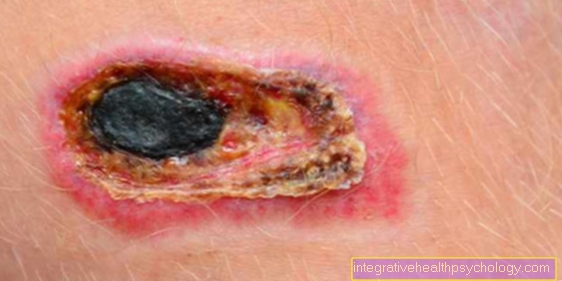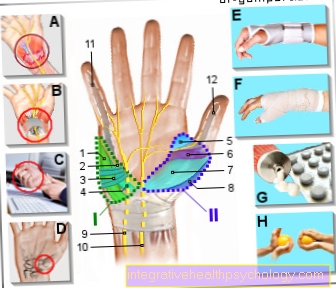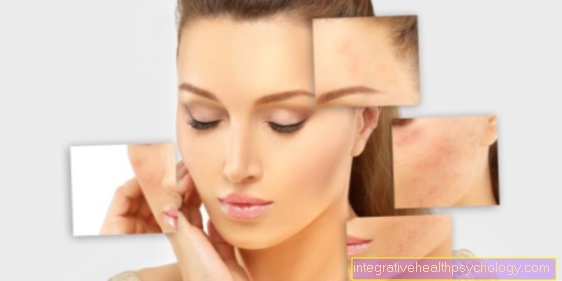Mosquito repellent
introduction

To protect yourself from annoying mosquito bites and thus avoid the unpleasant itching caused by it from the outset, there are a number of different options.
In addition, a mosquito repellent is not only helpful in preventing the agonizing itching, but also an important measure, especially in endangered areas, to protect against dangerous mosquito-borne infectious diseases. Effective protective measures are therefore part of every trip.
Which mosquito protection measure is most suitable depends, among other things, on the objective: to protect against malaria or dengue fever-transmitting mosquitoes in certain travel areas, different methods are necessary than to avoid mosquito bites at night or during a cozy barbecue evening in own garden.
In addition, there is no such thing as one hundred percent mosquito protection, as different types of mosquitoes are deterred by the individual protection methods to different degrees. With over 3500 different mosquito species, the sensitivities to the various defense methods differed: a remedy that is effective against native mosquito species in Germany can be completely ineffective in tropical areas.
Why one or the other seems to be more infected by mosquitoes does not depend on "the sweetness of the blood", as is often wrongly claimed, but rather on the fragrance mixture of the skin: ammonia, fatty acids, lactic acid and uric acid, which are released through sweat are secreted on the skin, mosquitoes are particularly attractive. The mixing ratio of these components on our skin surface is genetically determined. Which of the components of the skin film is particularly attractive also depends on the particular mosquito species.
Just as the mixture of scents in the skin affects the mosquito's sting, the way in which mosquitoes are attracted also depends largely on one factor: the amount of carbon dioxide emitted during breathing, which the mosquitoes can smell from a great distance.
The protection methods presented below are generally among the most effective.
Repellants
The so-called mosquito repellants are among the most common and popular mosquito repellants Repellants.
These are synthetic active ingredientswhich are perceived by mosquitoes via the sense of smell and deterrent but not death. In addition to the deterrent mechanism, the odorous substances also ensure that the mosquitoes can no longer perceive the body's own odor, which would normally attract them.
The repellants are applied directly to the skin, usually in the form of a Sprays or Oil and have a continuous effect over several hours (usually 4-8 hours).
Depending on which goal is to be pursued with the repellants, there are some with ingredients for sting or disease prophylaxis.
Of the synthetic active ingredient icaridin (e.g. Autan Protection Plus) is usually sufficient in this country for a pure Stab prophylaxis, whereas the ingredient DEET (e.g. Nobite skin spray, Anti Brumm forte) is more effective for trips to the tropics with the risk of transmitting diseases through mosquitoes.
Protection by proper clothing

In addition to protection by applying effective repellants, a very simple, conservative method is often effective: wearing long, light-colored clothing that covers the skin well keeps most mosquitoes from biting.
Since most mosquitoes are attracted to dark surface colors and the body's own odor, something can be done about this.
It is important that the clothing is tight, but not tight, as there is otherwise a risk of piercing.
If the long, light-colored clothing is combined with the use of repellants, very effective protection can be assumed.
There is also the option of impregnating the clothing used against mosquitoes in order to protect against those mosquitoes that bite through clothing themselves. Simple impregnation sprays (e.g. Nobite clothing) can be used for this, although it should be ensured that a renewed impregnation is necessary after each wash.
You may also be interested in this topic:
- Mosquito bite on the face
Fly screens
Proper clothing and the use of repellants enable effective protection outdoors.
It should also be possible to prevent mosquitoes from entering the house or bedroom Fly screens in windows and doors can be used effectively. There are many different ways to install mosquito nets in door and / or window frames.
Travel fly screens that can be used temporarily while on vacation are also available alongside permanently installed fly screens at home.
Mosquito nets
In addition to installing a fly screen in window and / or door frames, a Mosquito net over the bed are an effective way to keep mosquitos away at night.
Especially for those who do not want to use chemicals or repellants and do not want to kill mosquitoes with insect killers or insecticidal mosquito plugs, mosquito nets are suitable for the respective bed. Even mosquitoes that have made their way through mosquito nets can be kept away from the body while sleeping and also avoid the annoying humming noise at night.
In addition, there are also impregnated mosquito nets, which are particularly recommended in dangerous tropical areas (it may even be necessary to use additional repellants here).
Insect killer
Once the mosquitoes get into closed rooms from the open, it is usually difficult to get rid of them.
For the Indoor use other methods are therefore available, including the Insect killer: this attracts the mosquitoes (and also other nocturnal insects) by means of UV light and immediately destroys them with you Electric shockas soon as they have entered the device.
With a protective frame made of plastic or a grounded metal frame, the insect killers usually do not pose any danger to people, and these devices also work completely without chemistry. All you need is a free socket to put the insect killer into operation.
Outside of indoor spaces, however, the insect killers must not be used, as this would lead to unnecessary, unselected killing of insects.
Mosquito plug
Another option for one Mosquito repellent indoors is the Mosquito plugthat simply has to be plugged into a socket.
There are two different plugs that destroy or drive away mosquitoes in closed rooms in different ways.
For one thing, there are mosquito plugs that come with a Biocide vaporizer work and thus insecticides Distribute continuously in the room via an evaporator. These are mostly very effective in killing mosquitoes, but also not always completely harmless to healthif they are used continuously over a long period of time.
On the other hand, there are mosquito plugs that come with Ultrasonic waves work and thus not kill the mosquitoes, but with the help of acoustic interfering signals (imperceptible to humans) expel.
Home remedies to protect against insects

Common home remedies, in addition to the use of fly screens, mosquito nets and suitable clothing, include essential oils, which can be used in the form of candles, bracelets and garden torches.
Common essential oils include bergamot, lemon, mint, camphor, cinnamon, sandalwood, lavender, anise, eucalyptus, and catnip. These can also be spread on clothing or bed linen.
When using essential oils, however, it should always be noted that allergic skin reactions can occasionally occur if the oils are in direct contact with the skin.
Preparing a lavender, vinegar or lemon essence in a bowl that is placed near the lounge can also help drive away the annoying mosquitoes.
Likewise, dried cloves squeezed into a freshly sliced lemon can help keep mosquitos out.
Further information on the topic can be found here: Home remedies for mosquito bites





























